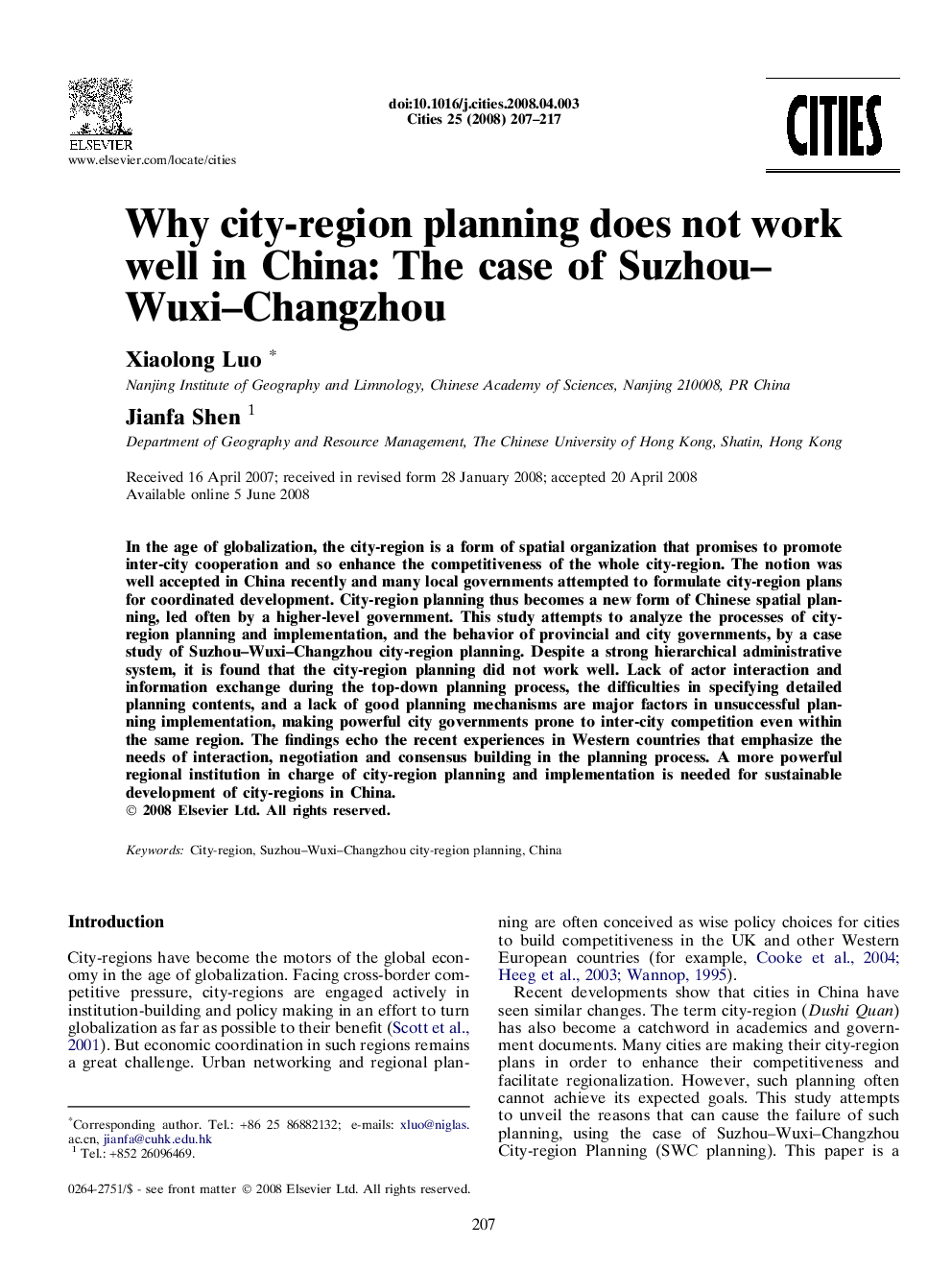| کد مقاله | کد نشریه | سال انتشار | مقاله انگلیسی | نسخه تمام متن |
|---|---|---|---|---|
| 1008914 | 938608 | 2008 | 11 صفحه PDF | دانلود رایگان |

In the age of globalization, the city-region is a form of spatial organization that promises to promote inter-city cooperation and so enhance the competitiveness of the whole city-region. The notion was well accepted in China recently and many local governments attempted to formulate city-region plans for coordinated development. City-region planning thus becomes a new form of Chinese spatial planning, led often by a higher-level government. This study attempts to analyze the processes of city-region planning and implementation, and the behavior of provincial and city governments, by a case study of Suzhou–Wuxi–Changzhou city-region planning. Despite a strong hierarchical administrative system, it is found that the city-region planning did not work well. Lack of actor interaction and information exchange during the top-down planning process, the difficulties in specifying detailed planning contents, and a lack of good planning mechanisms are major factors in unsuccessful planning implementation, making powerful city governments prone to inter-city competition even within the same region. The findings echo the recent experiences in Western countries that emphasize the needs of interaction, negotiation and consensus building in the planning process. A more powerful regional institution in charge of city-region planning and implementation is needed for sustainable development of city-regions in China.
Journal: Cities - Volume 25, Issue 4, August 2008, Pages 207–217